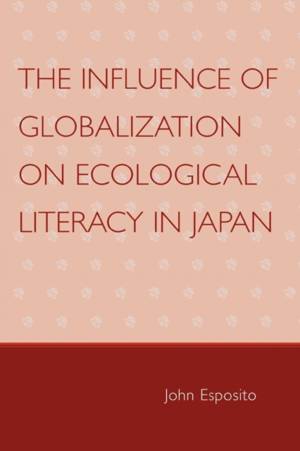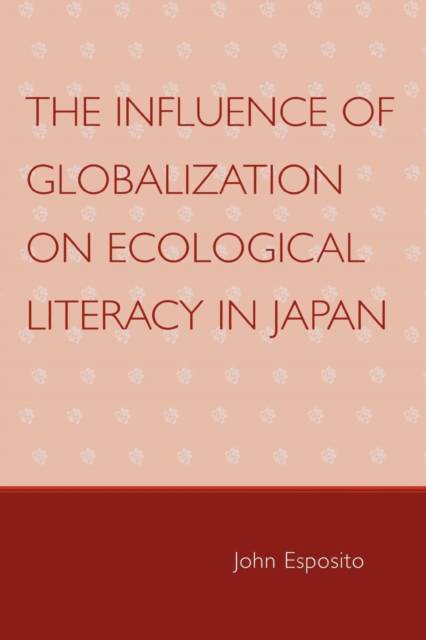
- Afhalen na 1 uur in een winkel met voorraad
- Gratis thuislevering in België vanaf € 30
- Ruim aanbod met 7 miljoen producten
- Afhalen na 1 uur in een winkel met voorraad
- Gratis thuislevering in België vanaf € 30
- Ruim aanbod met 7 miljoen producten
Zoeken
€ 100,95
+ 201 punten
Omschrijving
Globalization, understood as an intensification of modernism, has over the past fifty years been a powerful force for cultural change. This study examines how one aspect of globalization, Hollywood films, influences Japanese thinking as regards to human-nature relationships. A critical discourse analysis of the most popular cinematic texts in Japan during a five-year period (1997_2001) uncovers the latent ideologies and messages linked to a modern worldview. This interdisciplinary work evaluates the influence of these films by way of a descriptive survey of Japanese culture; data from a university student focus group; and an analysis of linguistic, behavioral, and attitudinal changes toward environmental issues. A holistic approach to curricular reform that grounds ecological principles in traditional perceptions of nature is proffered as a way of countering exogenous influences while restoring a sense of balance to the culture-ecosystem.
Specificaties
Betrokkenen
- Auteur(s):
- Uitgeverij:
Inhoud
- Aantal bladzijden:
- 300
- Taal:
- Engels
Eigenschappen
- Productcode (EAN):
- 9780761835394
- Verschijningsdatum:
- 30/08/2006
- Uitvoering:
- Paperback
- Formaat:
- Trade paperback (VS)
- Afmetingen:
- 155 mm x 228 mm
- Gewicht:
- 462 g

Alleen bij Standaard Boekhandel
+ 201 punten op je klantenkaart van Standaard Boekhandel
Beoordelingen
We publiceren alleen reviews die voldoen aan de voorwaarden voor reviews. Bekijk onze voorwaarden voor reviews.











